Ethiopia hosts convergence workshop on food systems, nutrition and climate action
Convergence Initiative workshop gathers diverse stakeholders in Ethiopia to develop a strategic blueprint for integrating food systems transformation and nutrition with climate action.
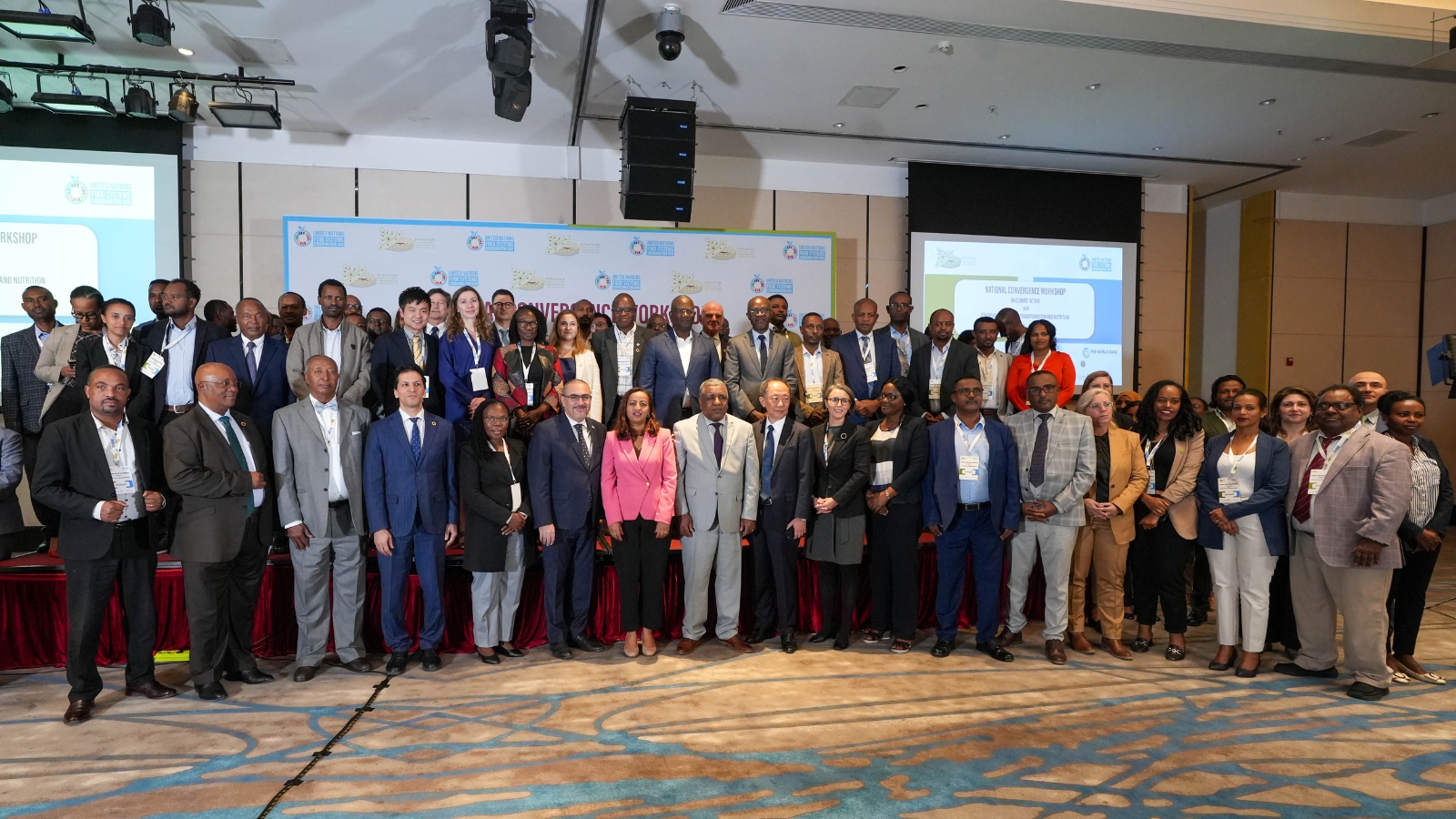
Addis Ababa, Ethiopia – Agriculture supports over 80% of Ethiopia’s population, contributes 34% of its GDP, and generates 70% of its export earnings. Yet, the sector faces growing challenges from climate change, including droughts, floods, and land degradation. These threats to food security and economic stability underscore the urgent need for integrated solutions.
To address these challenges, Ethiopia hosted a National Convergence Workshop on Climate Action and Ethiopian Food Systems Transformation & Nutrition (EFSTN), from January 15 – 17, 2025, in Addis Ababa. As the first African country to pilot the UN Food Systems Coordination Hub’s Convergence Initiative – a collaborative effort supported by the Netherlands – Ethiopia is demonstrating its leadership in aligning food systems transformation and nutritionwith climate goals to advance the Sustainable Development Goals (SDGs) and Paris Agreement. The workshop was co-organized to catalyze the transformation of the agriculture sector by the Ethiopian Agricultural Transformation Institute (ATI) which has the mandate of addressing system constraints and developing sustainable food systems.
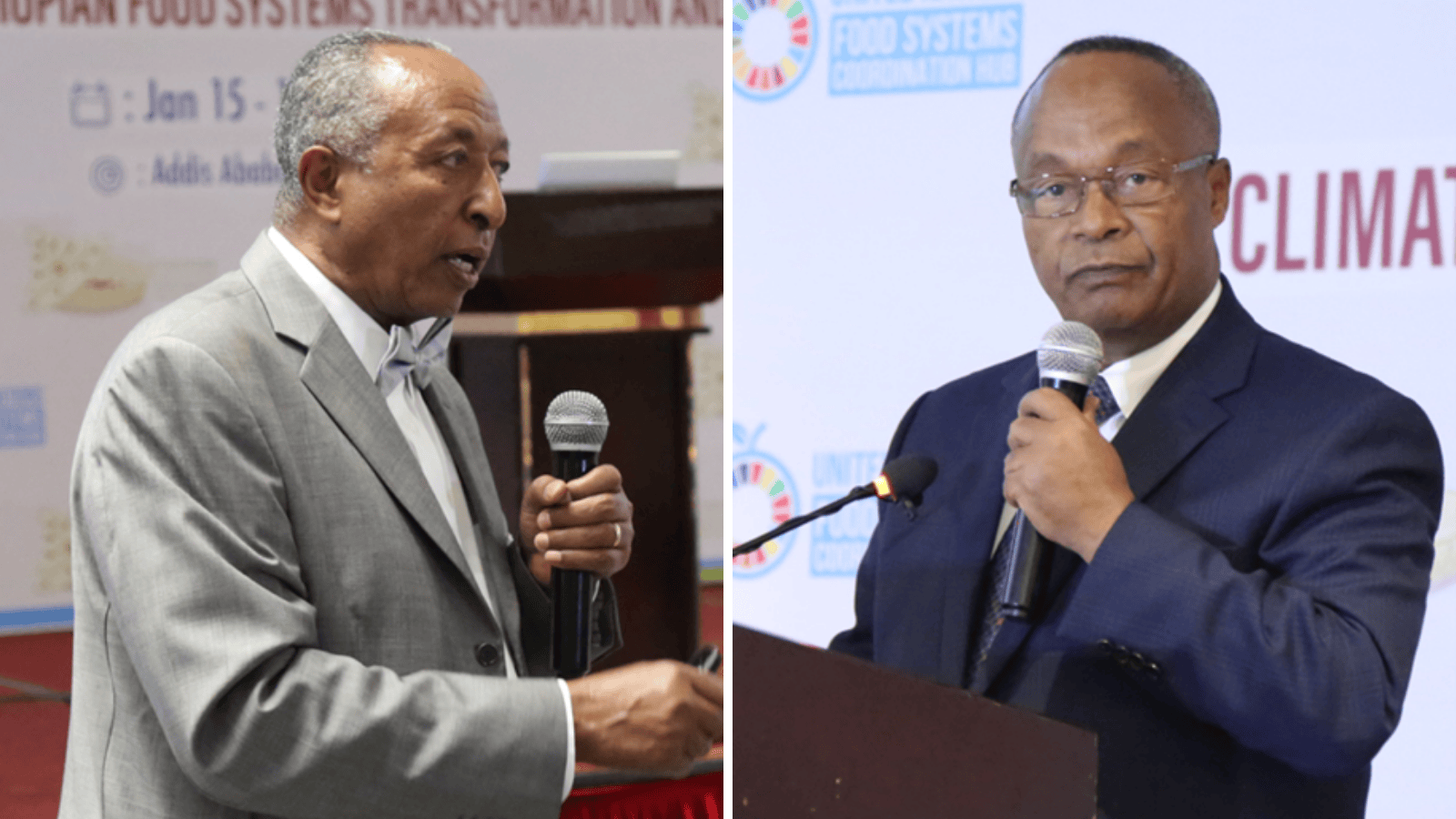
Left to right: Dr. Getachew Diriba and Dr. Mandefro Nigussie.
In his welcoming remarks, Dr. Mandefro Nigussie, the CEO of the Ethiopian ATI, underscored that the Convergence Initiative relinks diverse actors with complementary knowledge, skillsets, systems, and innovative approaches by aligning national, regional, and global efforts so that complex and interrelated challenges can be addressed in more coherent, inclusive, and impactful ways. He added that the workshop symbolized the collaborative spirit required to align Ethiopian food systems transformation and nutrition with sustainability, resilience, and equity principles.
Dr Getachew Diriba, the Principal Coordinator of the Ethiopian Food Systems Transformation and Nutrition said, "Over the past four years, we have had moments of soul-searching. We brought in expertise who know Ethiopia, who have written about Ethiopia, and engaged them in a series of conversations, thereby developing the Ethiopian Food Systems Synthesis Report."
Remarks from the National Convenors
The workshop opened with remarks by Ethiopia’s Minister of Agriculture and National Convenor, H.E. Dr. Girma Amente, who highlighted the nation’s inclusive approach to food systems governance. “The Ethiopian food system is comprehensive, covering the entire value chain from production to consumption,” he said. “This workshop comes at a crucial time as we face rising temperatures, erratic rainfall, and prolonged droughts.” Dr. Girma reaffirmed Ethiopia’s commitment to building a climate-resilient food system to advance sustainable development and improve the livelihoods of millions.
H.E. Dr. Mekdes Daba, Minister of Health, co-chair of the Ethiopian Food Systems and Nutrition Platform and National Convenor, emphasized the importance of integrating climate-resilient practices into food systems to improve nutrition outcomes. “Building resilience to climate change is a cornerstone of our work,” she said, citing policies such as advancing nutrition literacy and promoting climate-responsive dietary guidelines.
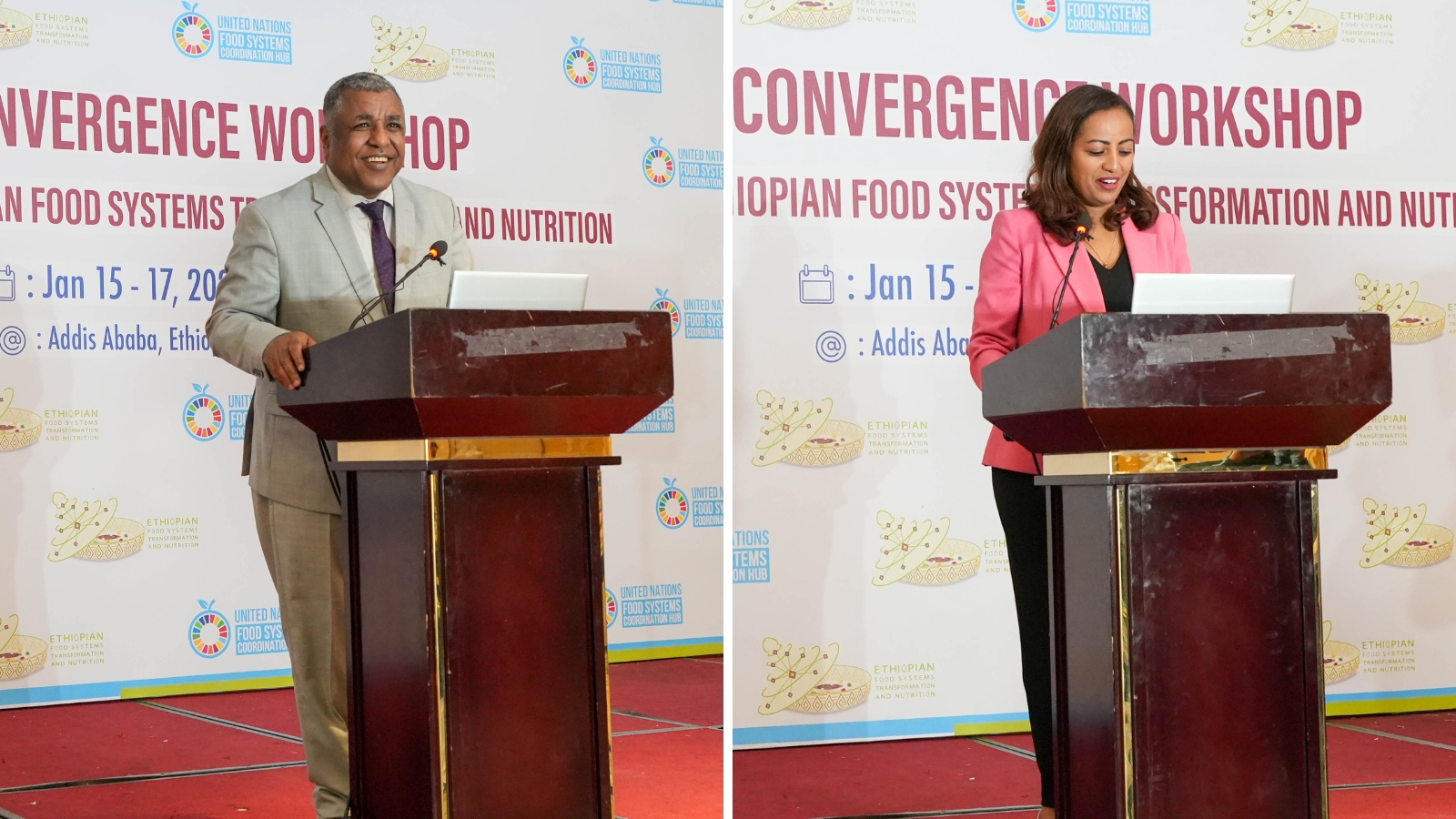 Left to right: H.E. Dr. Girma Amente and H.E. Dr. Mekdes Daba.
Left to right: H.E. Dr. Girma Amente and H.E. Dr. Mekdes Daba.
Global support and collaborative action
Dr. Ramiz Alakbarov, UN Resident and Humanitarian Coordinator in Ethiopia, commended the government’s leadership in tackling climate and food systems challenges. “Ethiopia’s efforts have led to increased agricultural production, with surplus crops like onions, bananas, and spices sold to neighboring countries,” he noted. Dr. Alakbarov emphasized the need for investment in modern technologies and storage to reduce post-harvest losses, positioning food systems transformation as central to sustainable development.
Dr. Khaled Eltaweel, Senior Programme Coordinator at the UN Food Systems Coordination Hub, acknowledged Ethiopia’s pioneering role as the fifth country – and the first in Africa – to pilot the Convergence Initiative. “Ethiopia’s national pathway demonstrates a bold vision for sustainable, inclusive, and resilient food systems,” he said, highlighting its progress since the 2021 Food Systems Summit.
Sir David Nabarro, Strategic Director of the 4SD Foundation and advisor to the Convergence Initiative, called the workshop groundbreaking. “We’re developing a blueprint to advance convergence in Ethiopia,” he said. “This includes defining interventions, setting milestones, and establishing accountability mechanisms to ensure these efforts benefit people at all levels.”
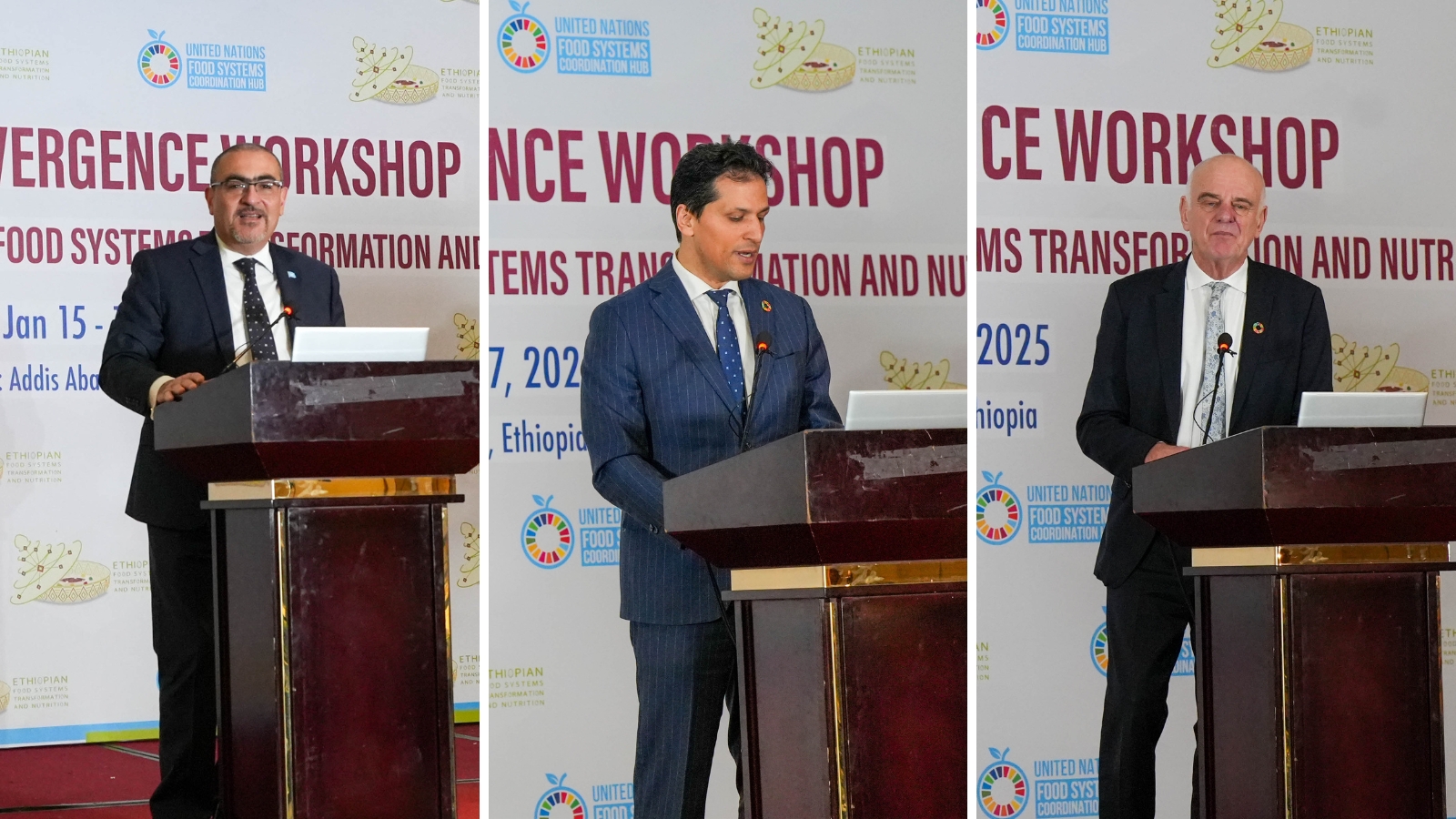 Left to right: Dr. Ramiz Alakbarov, Dr. Khaled Eltaweel, Sir David Nabarro.
Left to right: Dr. Ramiz Alakbarov, Dr. Khaled Eltaweel, Sir David Nabarro.
Key outcomes and next steps
The workshop concluded with several outcomes:
- Development of the Convergence Action Blueprint (CAB): A strategic framework for integrating food systems transformation and nutrition with climate action, detailing interventions, milestones, and governance mechanisms endorsed by the participants of the Workshop.
- Interministerial committee: Ethiopia’s previously established interministerial committee will oversee the alignment of EFSTN and climate action.
- Key Performance Indicators (KPIs): KPIs will be defined to track progress, adapting global best practices to Ethiopia’s context.
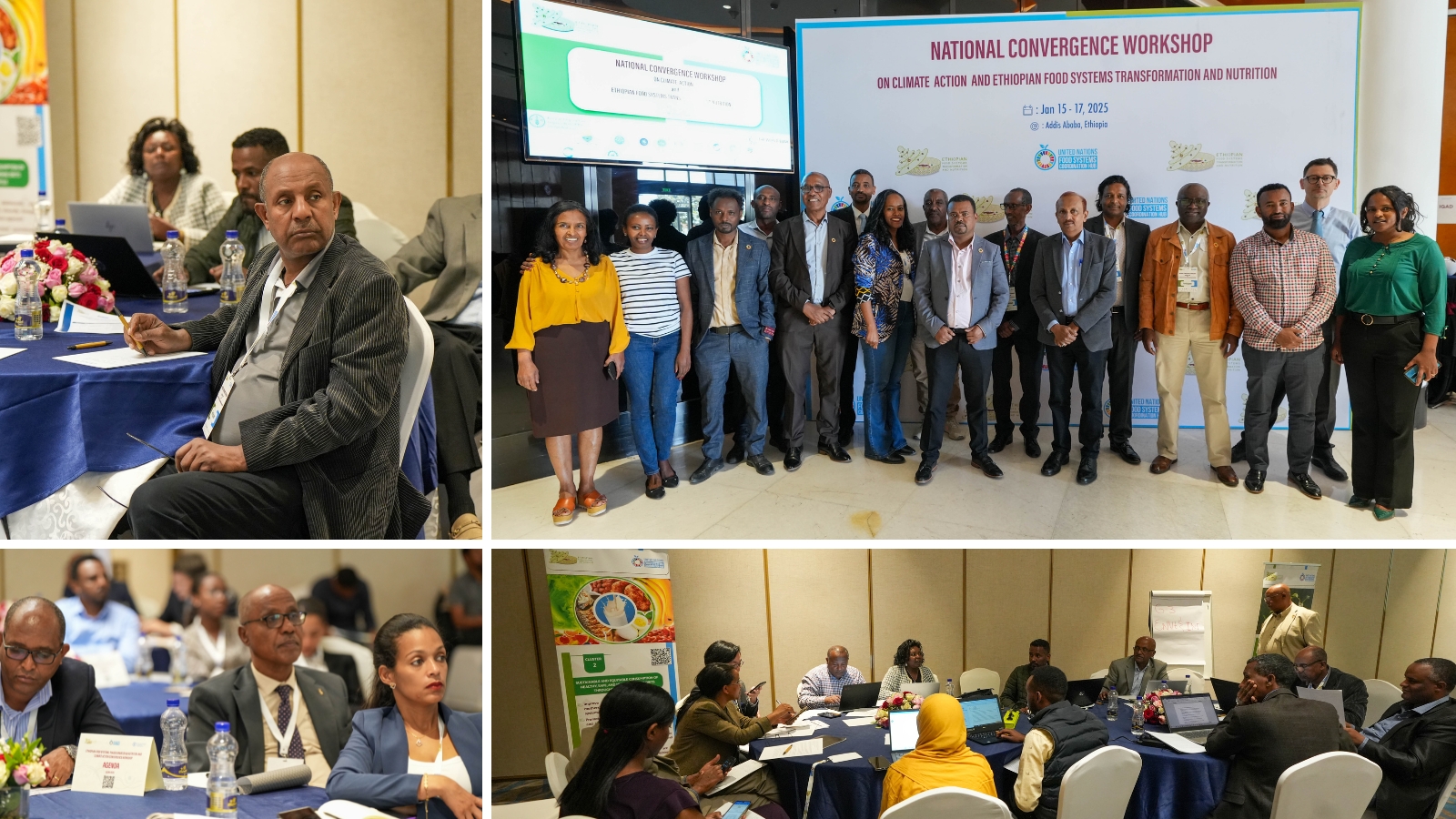
Changing the narrative
Ethiopia’s agricultural sector, vital to millions of livelihoods, remains vulnerable to climate change. The workshop underscored the need for climate-smart practices such as drought-resistant crops, expanded irrigation, and resilient livestock management. Indigenous knowledge and agricultural innovation were also identified as critical assets for achieving sustainability.
“This is a powerful opportunity to rewrite Ethiopia’s narrative,” concluded Dr. Girma. “A story not of vulnerability but of resilience, innovation, and hope.”
The outcomes of the workshop will be showcased at global forums, including the UN Food Systems Summit +4 Stocktaking Moment (UNFSS+4) in 2025 and COP30 in Belém, Brazil.
